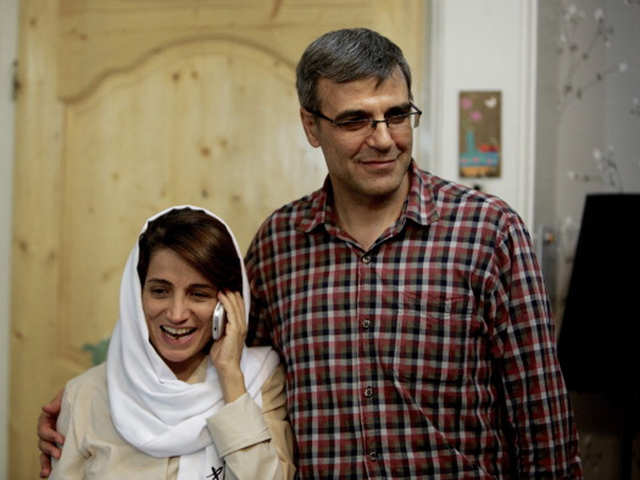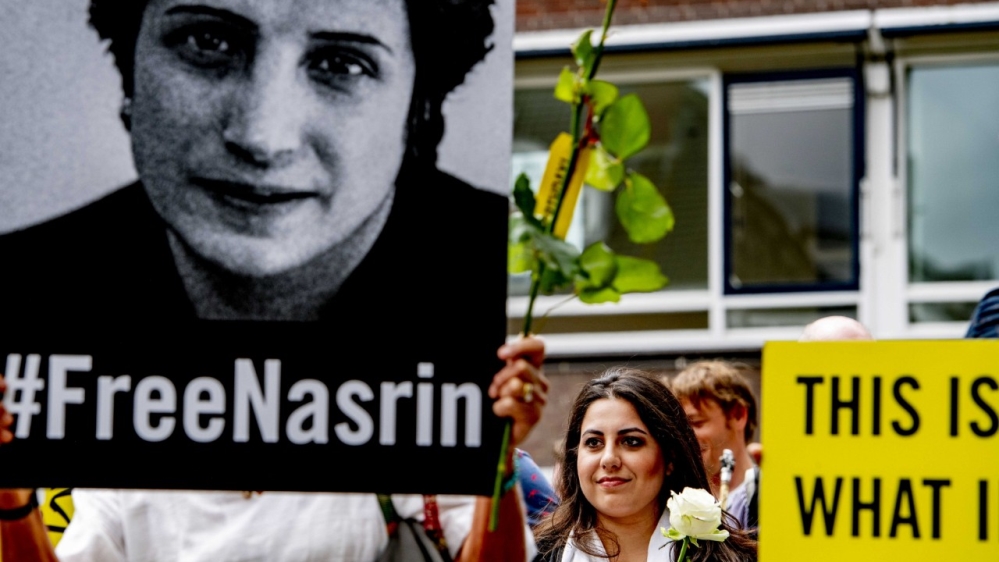
Locked up for two years, the famous human rights defender protests against the conditions of detention, even more degraded since the start of the Covid-19 epidemic.
From her cell, Nasrin Sotoudeh writes: “Human rights activists! Amid the coronavirus crisis, which affects Iran and the world, the conditions of political prisoners have become so difficult that their detention can no longer continue with so much oppression. ” The lawyer, the tireless defender of the persecuted, then delivers a short plea in favour of those who, like her, are locked up at the end of dubious procedures without recourse or right. This letter which managed to get out of his jail ends with these words: “I am starting a hunger strike and demand the release of political prisoners. In the hope of establishing justice in my country, Iran. ”
Nasrin Sotoudeh knows the Iranian justice system as well as the prison. She made her first stay there in 2009, after defending opponents of the highly contested re-election of the whimsical ultra-conservative Mahmoud Ahmadinejad. “Actions against national security and propaganda against the regime,” the court said: six years ago. She is through half of it, released after the award of the Sakharov Prize in 2012 which salutes a personality committed to the defence of human rights.
The hunger strike in Iran
The freedom recovered is not total: the lawyer no longer has the right to plead before the revolutionary courts. Of this justice, she spoke in 2018 to Liberation as “a faulty system, whose members are not elected and which has a decision-making monopoly with regard to human rights”. Nasrin Sotoudeh then launched into the defence of the “daughters of the Revolution”, these women, often far from all militant structures, who took off their veils in public to protest against its compulsory wearing. All were arrested. Then came the turn of their lawyer. “Conspiracy against the system”, insults against Supreme Leader, incitement to prostitution, among others: 38 years in prison (only the heaviest sentence, ten years, must be carried out), and even 148 lashes.
Nasrin Sotoudeh, 57, has since been held in Evin, the notorious prison in northern Tehran, where political prisoners are held. She would share a huge cell with about forty other women, including the Franco-Iranian anthropologist Fariba Adelkhah, sentenced to five years in prison on appeal at the end of June, at the end of a procedure again opaque, vigorously denounced by her supporters and the French diplomacy. Another foreigner, the young Australian-British researcher Kylie Moore-Gilbert, has just been secretly transferred to Ghartchak, an isolated prison in the centre of the country, one of the most overcrowded and the most formidable, especially in the time of the COVID-19.

Hygiene
Since the start of the epidemic, the Iranian authorities have been suspected of underestimating the overall toll: the Persian service of the BBC published an investigation in early August claiming that 42,000 people had died from the COVID-19, against around 14,000 officially. On Sunday, an Iranian official assured that the figures were made up. The daily newspaper that published the interview, Jahan-e Sanat ( Industry World), was closed on Monday. The authorities nevertheless accepted parole of prisoners, shortly after the start of the pandemic. But not for political prisoners.
“The situation is very dangerous in prisons, among other things because of the COVID-19. Hundreds of prisoners are held in Evin, often in precarious hygienic conditions ”, warns Karim Lahidji, of the League for the Defense of Human Rights in Iran. This travelling companion of Nasrin Sotoudeh says he is “very, very worried about the health” of his colleague, who is now imprisoned on hunger strike. “This is not the first time that Nasrin Sotoudeh has decided to put her life and health in danger to send a message,” he recalls. The last weapon in a long fight that is to come.




